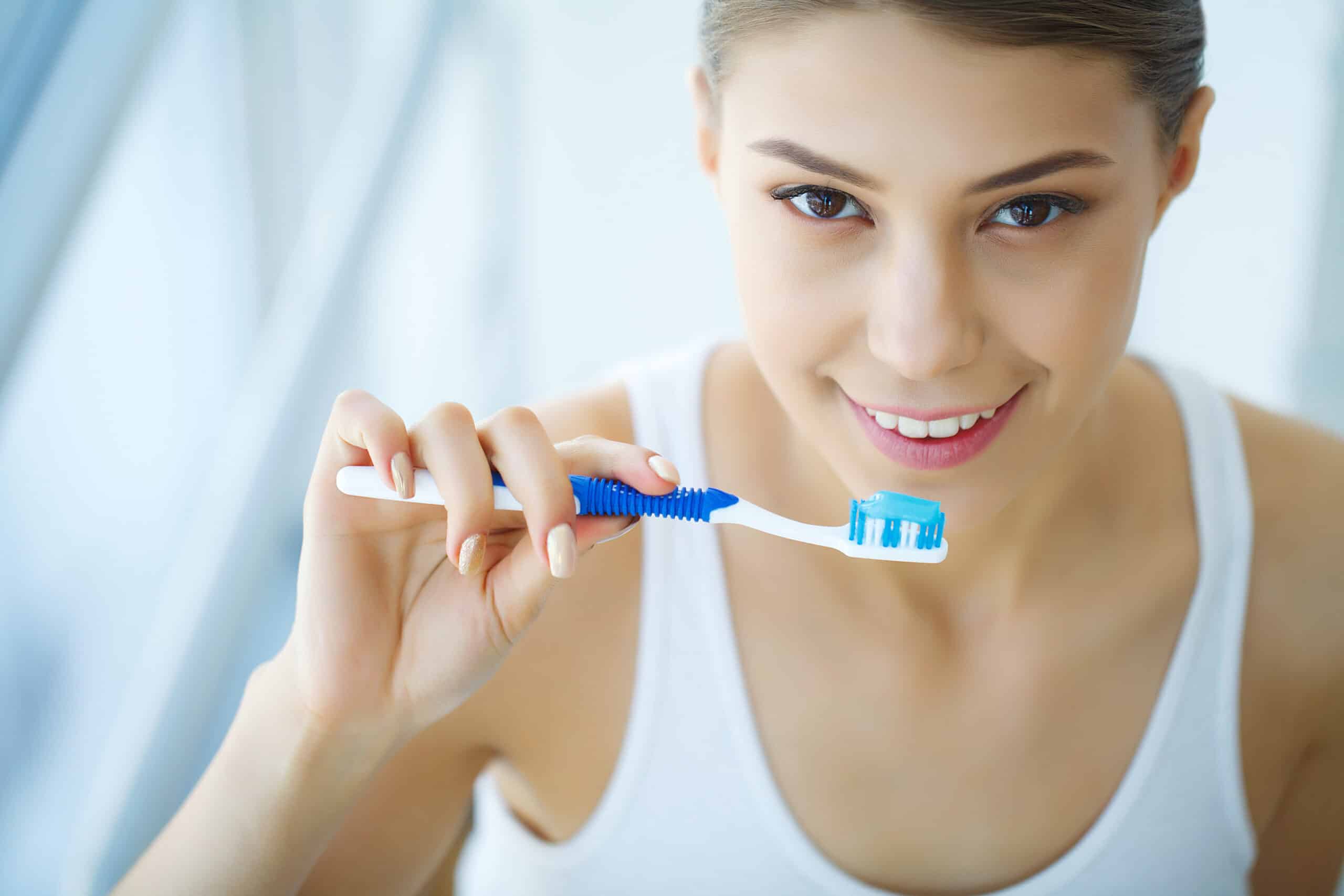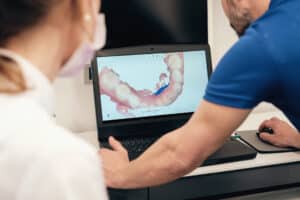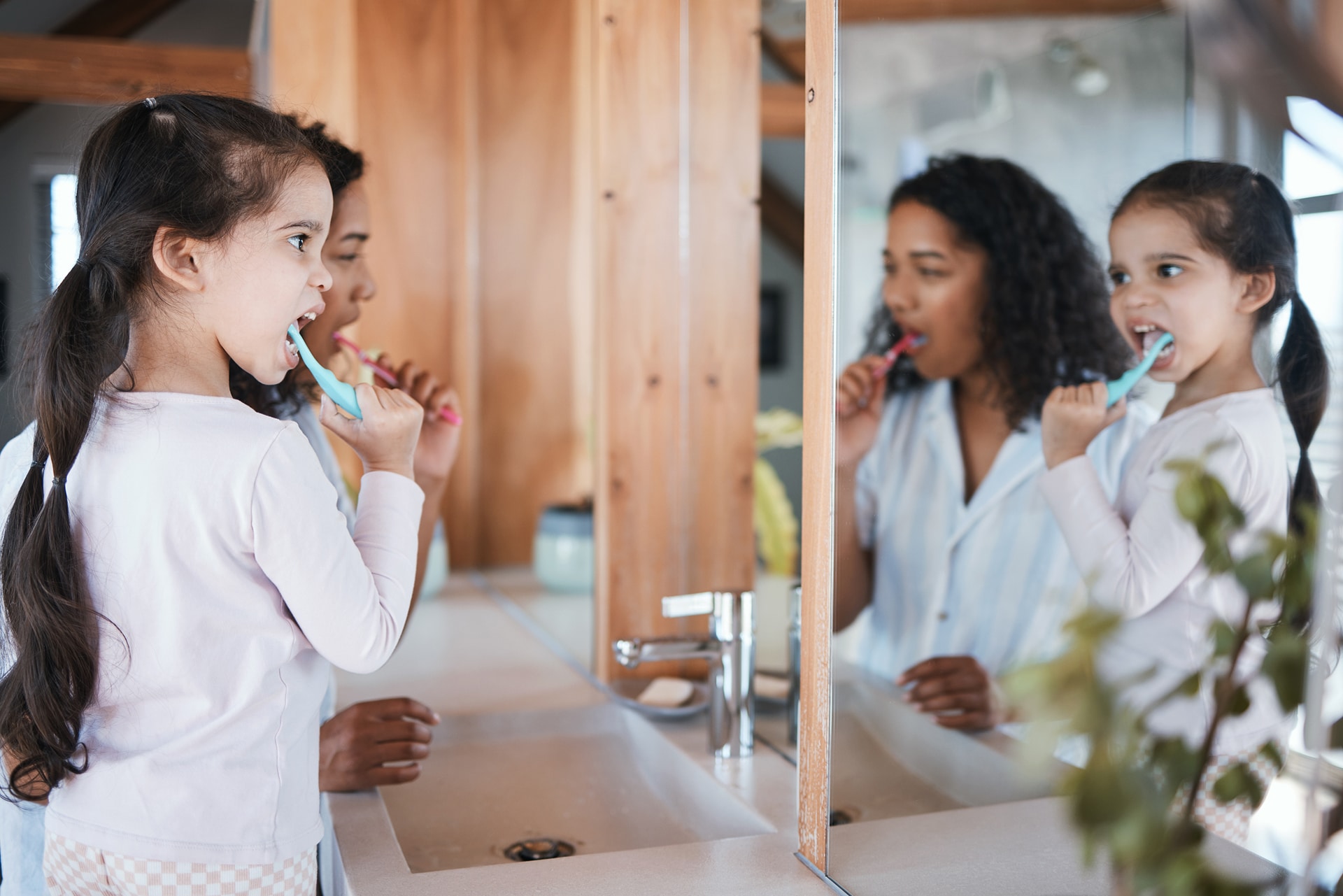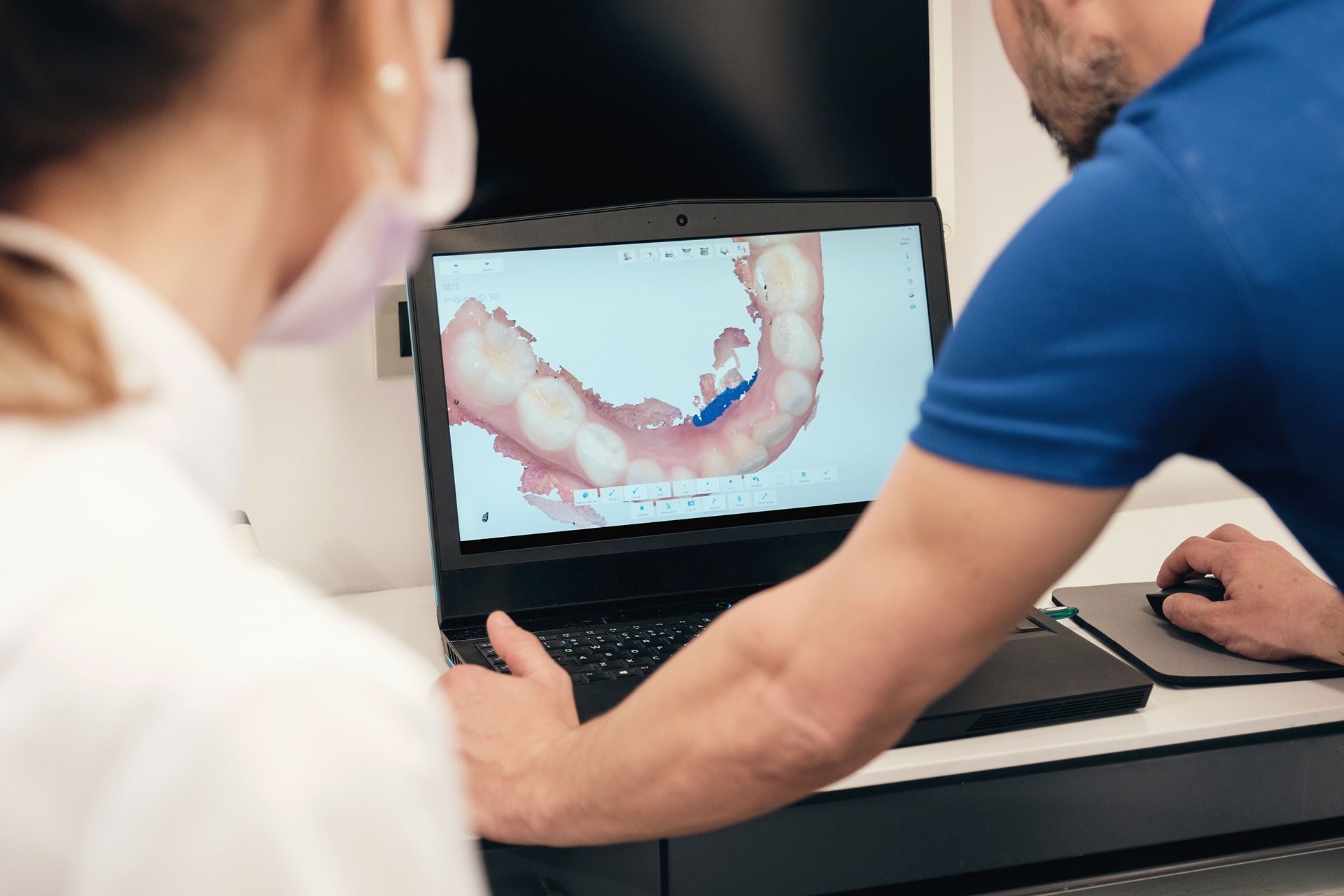- What happens when you brush too hard
- Signs you are brushing too hard
- Tips for brushing gently and effectively
- When to see a dentist to help with brushing too hard
It is good to be enthusiastic about oral health. We all want our smiles to be beautiful, healthy, and accompanied by fresh breath.
However, your teeth and gums are not like that shirt with a stubborn stain that needs harsh scrubbing to come out. Brushing too hard will not make your teeth cleaner but will have the opposite effect, causing damage that can lead to the same dental health issues you are trying to avoid.
That’s why we recommend a more gentle approach to brushing your teeth.
What happens when you brush too hard
Brushing your teeth too hard can have quite pronounced effects on your oral health. Tooth enamel erosion, gum recession, bleeding gums, tooth sensitivity, and an increased risk of cavities along the gumline are all potential outcomes of aggressive brushing.
With all these risks at play, it is critical to know their signs so you can take steps to protect your teeth and gums against further damage.
Signs you are brushing too hard
One of the biggest challenges in stopping yourself from brushing too hard is that you might not be aware you are doing it. That begs the question: how can you fix a bad habit you do not know you have?
Fortunately, there are several obvious signs that you might be exerting a little too much pressure when brushing your teeth, such as:
Toothbrush bristles that are frayed or worn prematurely
Generally, your toothbrush bristles should last between three and four months. A good rule of thumb is to change your toothbrush when the seasons change. However, if your toothbrush bristles become frayed, worn, or misshapen before three months, you are likely brushing your teeth too hard.
Bleeding gums and other gum damage from brushing
Healthy gums should not bleed during a regular dental hygiene routine. Occasional bleeding can indicate gum irritation caused by brushing too hard, which can often be resolved by adjusting your brushing style. On the other hand, persistent bleeding is usually a symptom of an underlying issue, such as gum disease, and should be investigated by your dental health team.
Tooth sensitivity from brushing too hard
The enamel on the surface of your teeth protects the soft, sensitive tissue, known as dentin, that lies within. If you suddenly develop an ongoing sensitivity to hot or cold food and beverages, you might be wearing away the enamel with aggressive brushing. This condition is known as enamel erosion.
Discoloured teeth
Brushing too hard can cause your naturally white teeth to appear discoloured because you are wearing away the enamel, allowing the yellowish-grey tissue underneath to become more visible.
Gum recession
Your gums are also highly sensitive to aggressive brushing. Over time, brushing too hard can start to wear them away, making your teeth appear longer as the root becomes exposed. This condition may require a gum graft so bacteria cannot develop underneath the gum line and attack the tissue holding your tooth in place.
Tips for brushing gently and effectively
Once brushing too hard has been identified as a possible cause of oral health issues, you can help break the habit by making simple changes to your toothbrush technique.
First of all, switch to a soft-bristled toothbrush if you’re using a medium or hard-bristled brush. Hold it at a 45-degree angle to your teeth and gently brush in circular motions, letting the brush do the work. It will still dislodge food particles and clean the surface on all sides of your teeth while preventing the damage associated with aggressive brushing.
Remember, brushing too hard does not benefit tooth and gum health, so use the toothbrush gently for a better overall outcome.
Another great way to stop aggressive brushing is to get an electric toothbrush. Electric brushes require no pressure to do their job well. You simply hold the bristles against your teeth, and the toothbrush heads will move on their own.
Also, many electric toothbrushes have pressure sensors that activate an alarm if you brush too hard. When the alarm sounds, lessen the pressure until it shuts off. You will quickly learn to apply the proper brushing pressure to keep the alarm from sounding, helping to protect your teeth and gums from damage caused by brushing too hard.
Changing your toothbrush technique might require a little outside support to do so successfully. Your dental team is the best resource when you need help with any aspect of your oral health, including advice on how to protect your teeth and gums from aggressive brushing.
When to see a dentist to help with brushing too hard
Generally speaking, you should make an appointment to visit your dentist whenever you have any oral health concerns, such as tooth pain, gum recession, or suspected cavities.
However, if you’re suffering from the effects of brushing too hard, your dental team can give you practical advice on brushing your teeth properly to prevent further damage to your teeth or gums.
For example, your dentist can observe your toothbrush technique and recommend areas for improvement through demonstration. They can also check for signs of damage typically associated with hard brushing and take steps to repair your smile.
If you need help with your brushing style, make an appointment with the expert team at Yonge Eglinton Dental. We are not here just when you need help with a dental problem; our team is always ready to help you create a good dental routine that will mitigate the risk of developing problems with your teeth and gums.
Give us a call today – we are always happy to help!
Prevent damage from brushing your teeth too hard with help from the dental experts at Yonge Eglinton Dental in Toronto
Contact our dental health team when you are ready to optimize your oral health. We will work together to ensure your teeth and gums look great and are as strong and healthy as possible. Make an appointment for an office visit today by calling our office at 416-932-2222 or booking online. We look forward to seeing you!
Are you concerned about visiting the dentist? Read about how we protect the health and safety of our patients and staff so your family can seek proper dental care with peace of mind.








